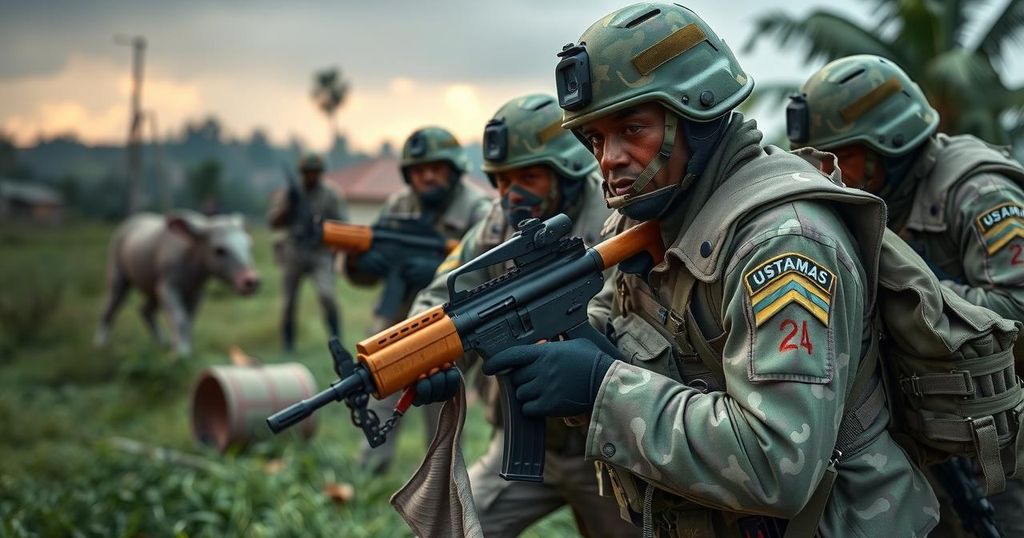The armed conflicts in North Kivu, DR Congo, have displaced over 290,000 people in December 2024 alone, adding to the 2.7 million already displaced. The clashes involve the FARDC and the M23, exacerbated by attacks from the ADF. The M23 is reportedly supported by Rwanda, complicating the regional dynamics further. The city of Masisi has been a focal point of conflict, highlighting the ongoing instability and humanitarian crisis in the region.
In the Lubero region of North Kivu, Democratic Republic of Congo, ongoing armed conflicts have intensified, resulting in more than 290,000 individuals being displaced in December alone, according to a report from the UN Office for the Coordination of Humanitarian Affairs (OCHA). This displacement adds to the existing 2.7 million internally displaced persons in North Kivu. Continuous clashes between the Congolese army (FARDC) and the M23 rebel group, linked to the activities of the ADF (Allied Democratic Forces), have exacerbated an already dire humanitarian situation. The report highlights the deteriorating security conditions, with the ADF launching attacks against civilians and the M23, allegedly receiving support from Rwanda, engaging in territorial conquests.
The M23 group’s resurgence in North Kivu is accused of being bolstered by Rwandan military support, which facilitates their ongoing offensives. The situation is particularly dire in Masisi, where control of the territory has shifted multiple times between the M23 and the Congolese army. Despite having regained control of the city, the military efforts continue to focus on reclaiming strategic hills that the rebels occupy, which pose a significant threat to local stability. The humanitarian crisis is compounded by the failure of peace negotiations in Luanda in December, leaving communities vulnerable and in desperate need of assistance.
The ongoing conflict in North Kivu, particularly involving groups like the M23 and the ADF, is set against a backdrop of historical tensions and regional instability. The ADF, originally a Ugandan group, has been implicated in severe human rights abuses and has claimed allegiance to extremist ideologies. In contrast, the M23 has emerged as a significant armed group, accused of receiving direct military assistance from neighboring Rwanda. These dynamics have created a complex humanitarian crisis, with millions displaced and dependent on international aid.
In summary, the humanitarian situation in North Kivu remains alarming, with over 290,000 people displaced in December alone amidst ongoing conflicts involving the M23 and ADF. The involvement of external actors, particularly Rwanda’s support for the M23, adds to the region’s instability, while local military efforts struggle to regain control of critical areas such as Masisi. Without a resolution to the ongoing conflicts and better humanitarian support, the future for the displaced populations remains precarious.
Original Source: www.fides.org






